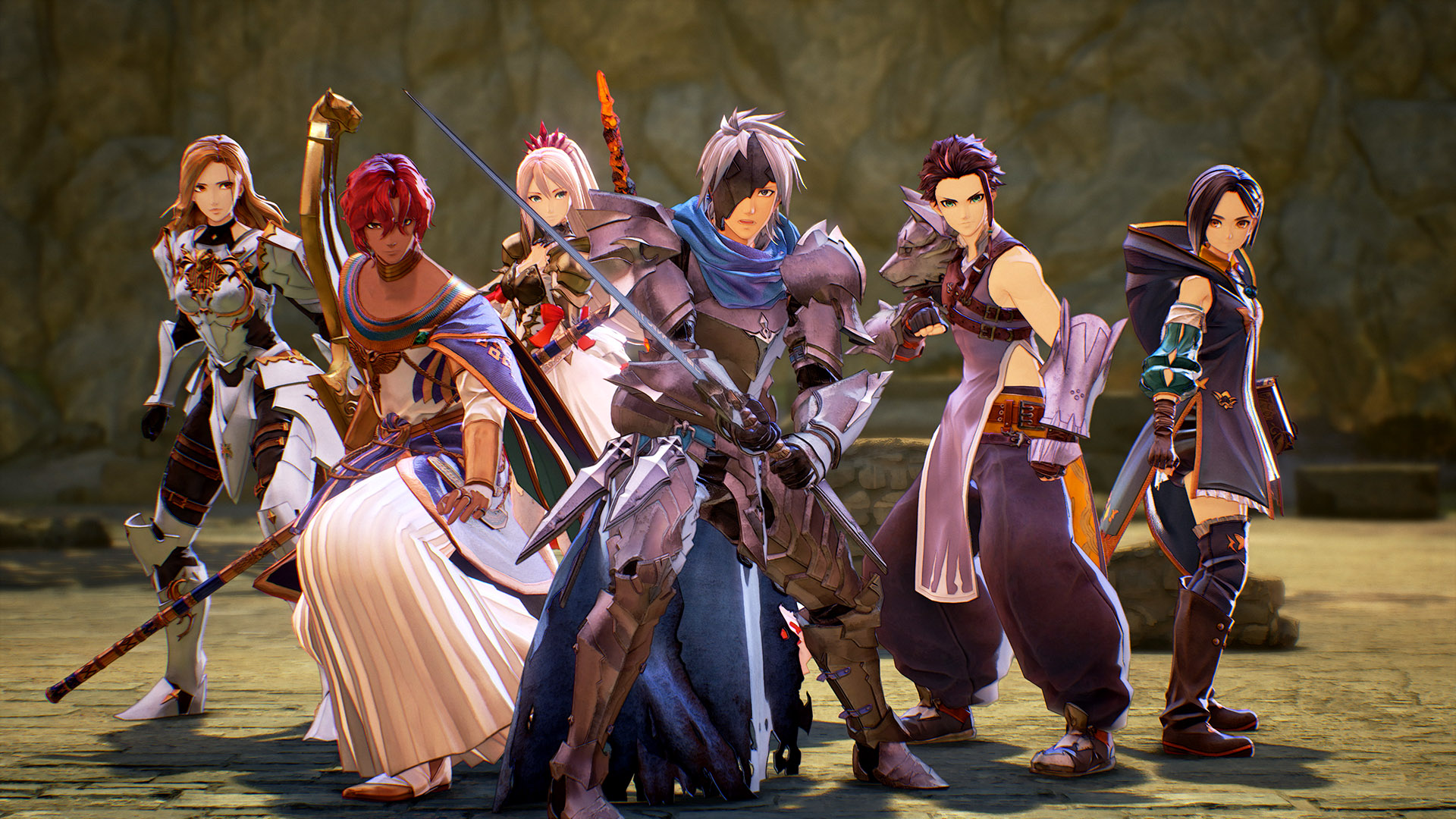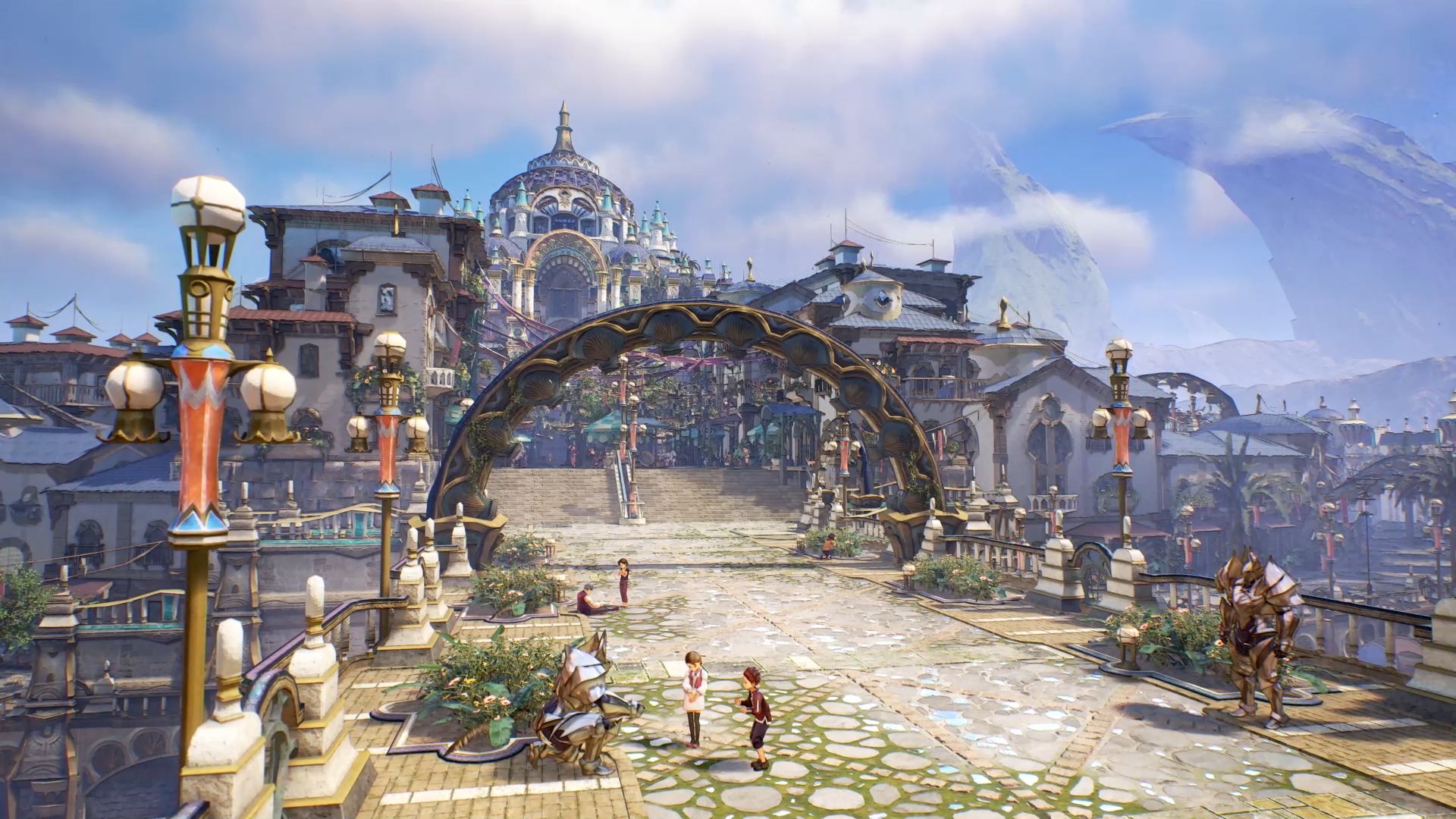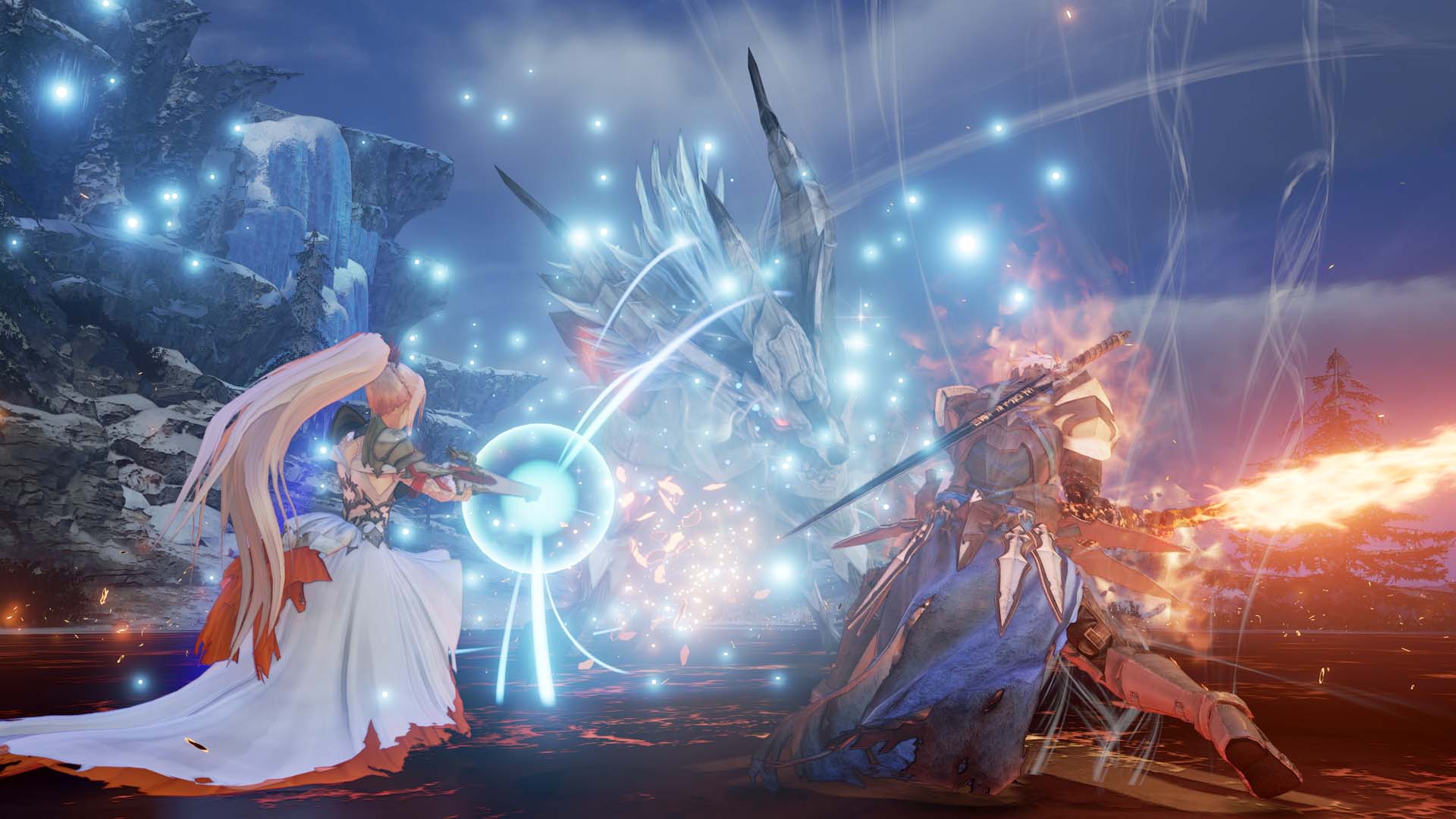
The Tales franchise hasn’t been in the best shape over the last decade or so. Its output has been wildly inconsistent, and though 2017’s Tales of Berseria was certainly an improvement over its predecessors, by and large, Tales’ trajectory has been one of a franchise in decline. Tales of Arise is Bandai Namco’s attempt to bring the series back on track. Backed by a much bigger budget, the game has been promising a much more polished, better looking, and ambitious Tales experience than any of its predecessors, and happily enough, Tales of Arise makes good on all of its promises. It’s probably one of the series’ better outings, and easily the best since Vesperia.
Tales of Arise tells the story of two worlds at war- Rena and Dahna, twin planets in close proximity. Three hundred years before the events of the game, the people of Rena invaded Dahna in droves, and empowered by their vastly superior technology and their unique ability to channel astral energy, conquered the world with little to no resistance. The people of Dahna were made slaves, and have been under the heel of Renan oppression for three centuries. As Tales of Arise begins, amnesiac slave Alphen’s paths cross with runaway Renan lord Shionne, who has her own mysterious personal vendetta against the lords of Rena, and wields a power that might just be able to topple them from their thrones. Alphen and Shionne’s meeting sparks a sprawling quest to defeat all the Renan lords and end centuries of Dahnan oppression.
Tales of Arise has a strong central premise, and it certainly digs into it in interesting ways at times as it shows the different and cruel ways the people of Dahna have been subjugated for years in different parts of the world. It helps that the dynamic between the two protagonists, Alphen and Shionne, is a strong one. Both have mysterious pasts, which have led to them both being cursed in different ways. Alphen is incapable of feeling any pain, while Shionne’s body instantly shocks anyone who touches her, and the weapon that Shionne wields, a burning blade known as the Blazing Sword, can only be wielded by Alphen. The relationship between the two is always one of the story’s strongest elements, though sure enough, it also keeps on introducing new characters and party members, most of whom tend to have interesting stories of their own as well (though some definitely more so than others).
"Backed by a much bigger budget, Tales of Arise has been promising a much more polished, better looking, and ambitious Tales experience than any of its predecessors, and happily enough, it makes good on all of its promises."
Unfortunately, even though Tales of Arise’s story, world, and characters have their strengths, the actual storytelling in the game is wildly inconsistent. Plot developments are often genuinely engaging, and the game does deliver solid character arcs and lore drops often enough, with many of the more crucial narrative sequences being shown through flashy and well-made anime-style cutscenes. More often than not though, Tales of Arise’s story suffers in other ways, with the clumsy writing being largely responsible. Dialogue is often clunky, characters frequently launch into awkwardly delivered and overwrought monologues, and a complete lack of nuance in the writing means that crucial character moments or attempts at dealing with the mental and emotional consequences of complete and prolonged slavery end up falling completely flat. All of this is exacerbated by the voice acting, which is mediocre at best and laughably bad at worst.
Thankfully, Tales of Arise’s rough storytelling is usually easily to overlook, because the bulk of the fun comes from actually playing the game. One of the game’s biggest strengths is its world, which exhibits impressive variety and art design from beginning to end. The story takes you to a number of different locations, realms, and environments, and each is gorgeously designed. From a barren wasteland dominated by lava and brimstone, to mountains covered in snow and ice and perennially blanketed in darkness, to a verdant land of lush fields and impressive, glistening architecture, Tales of Arise keeps taking you from one excellently realized location to another.
Even from a narrative perspective, the game ensures to separate each new location you visit from the others, exploring the different ways that the Renan lords have been ruling over different parts of the world, and how the oppressed Dahnans have coped with it different ways. Of course, the excellent art style does a lot of heavy lifting here as well, what with the game brimming with numerous breathtaking scenes and vistas. At the same time, however, Tales of Arise is also a significantly more technically polished game than any of its predecessors, and everything from the lush environments to the character models is rendered in much sharper detail. It’s still not on the same level as something like, say, Final Fantasy 7 Remake, of course, but Tales of Arise has made significant improvements in the visuals department over its predecessors that help its stunning art shine even brighter.
"From a barren wasteland dominated by lava and brimstone, to mountains covered in snow and ice and perennially blanketed in darkness, to a verdant land of lush fields and impressive, glistening architecture, Tales of Arise keeps taking you from one excellently realized location to another."
Exploring the game’s world is also consistently enjoyable. Tales of Arise isn’t an open world game, and instead adopts a traditional JRPG structure that sees you constantly travelling from one location to the next. But though there’s constant forward momentum, there are still plenty of opportunities to explore. The environments aren’t ever massive, but they’re large enough in their own right and have ample optional areas, collectibles, resource gather opportunities, and combat encounters, and the rewards you get for going off the beaten path and engaging with optional exploration usually feel worthwhile. By and large, exploration is certainly restrained, but there’s enough there that the game never feels restrictive or small.
Combat is another area where Tales of Arise excels. It starts out fairly straightforward and a little button mash-y, but keeps introducing new systems that collectively add plenty of complexity to fights. Primarily, you rely on dodges, standard attacks, and artes, which use up a regenerating gauge, and are encouraged to properly use your full moveset rather than sticking to a chosen few abilities. Other new mechanics are also added in at regular intervals in the game’s opening hours, such as Boost strikes – powerful team-up attacks that can be triggered after chaining enough hits together – Over Limits – which allow you to use artes with an unlimited gauge for a limited period of time – and more.
There’s plenty of enemy variety as well, while Tales of Arise also has quite a few boss fights (including some optional ones), most of which are tense, excellently designed, and frantic encounters. By and large, the combat leans more heavily in favour of action than strategy even when all of its different cogs are turning, which means that it’s not difficult to brute force your way through most combat encounters without engaging with most of the mechanics too deeply. Even so, in all the time I’ve spent with the game, combat was consistently enjoyable, and I was always eager to jump into fights. Artes, Boost strikes, Mystic Artes, and everything else that goes in fights is all flashy and explosive, and combat is always a frantic, exciting affair. That said, some of the longer and more hectic battles can get a little too chaotic at times, with multiple characters and enemies constantly using different attacks and abilities, and each constantly shouting out the names of whatever abilities they’re using.
"By and large, the combat leans more heavily in favour of action than strategy even when all of its different cogs are turning, which means that it’s not difficult to brute force your way through most combat encounters without engaging with most of the mechanics too deeply. Even so, in all the time I’ve spent with the game, combat was consistently enjoyable, and I was always eager to jump into fights."
Progression in Tales of Arise is solid as well, if not terribly complex. Leveling up earns you skill points, which you use to unlock various new artes, boosts, and more in a skill tree that gradually expands as the game progresses. As you grow more powerful, each character also unlocks new abilities, though you can only have a certain number equipped during combat, so you always have choices to make here as well. Meanwhile, you can also find new and powerful armour pieces and forge more powerful weapons and accessories using the materials you find while exploring. As you progress further in the game, you also get access to various side activities that feed into the progression loop in different ways as well, such as a training arena, or being able to run your own ranch and then using the cooking ingredients that yields to cook dishes with better buffs and benefits. None of these systems and mechanics offer too much depth or complexity on their own, but collectively, they come together to ensure that the progression always remains meaningful and satisfying to engage with.
In almost all the ways that matter most, Tales of Arise is a great success. It’s got a solid premise, and the actual story it tells can be quite engaging, and even though that story is let down by how sloppily it’s often told, Tales of Arise’s excellent world and frantic combat almost make up for those issues. Bandai Namco have swung big and hard with this game, with clear ambitions of taking their long-running series to new heights, and thankfully, they’ve succeeded. For fans of the series and fans of JRPGs in general, Tales of Arise is an easy recommendation.
This game was reviewed on the PlayStation 5.
Great central premise; Narrative can be quite engaging at its best; Varied, well-designed world is always fun to explore; Frantic, fast-paced combat; Solid progression; Looks fantastic.
The narrative is let down by sloppy writing and inconsistent storytelling; Combat can get a little too chaotic at times.




















